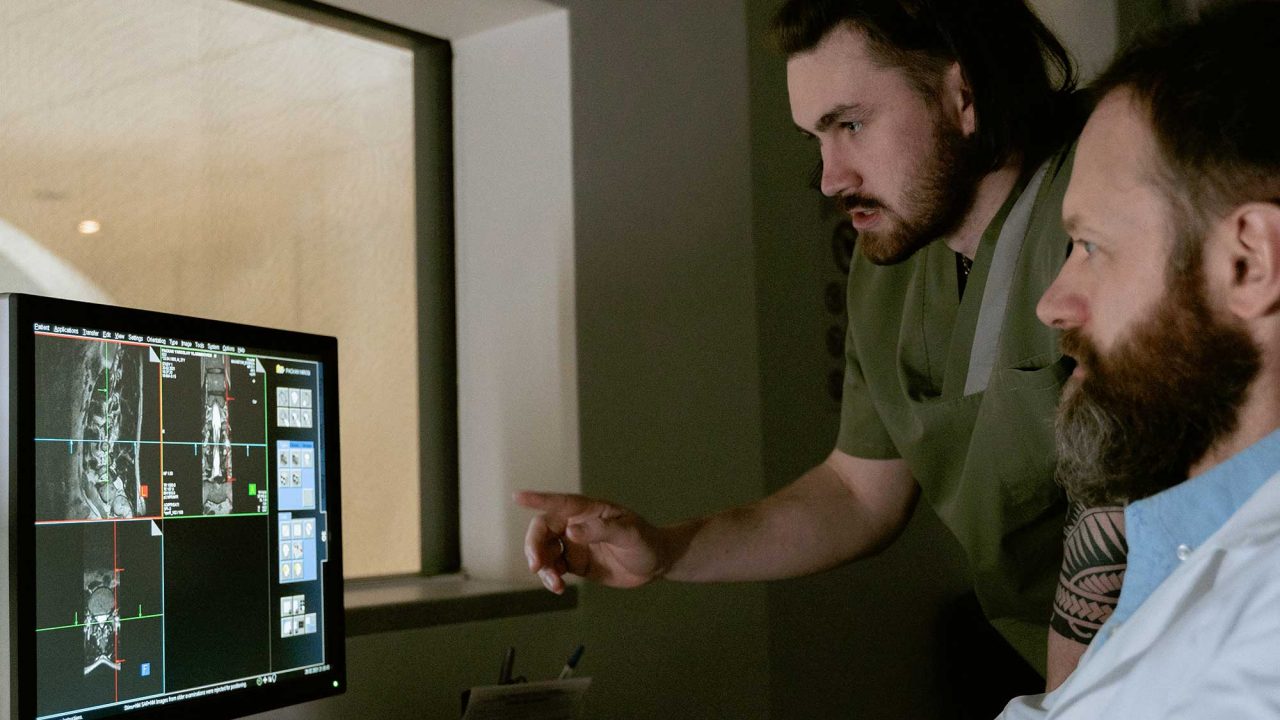At least a 2.1 honours degree or equivalent qualification in a relevant subject area
Our Clearing call centre is open Monday to Friday, 9am - 5pm
The use of different technologies in healthcare is growing exponentially. This has led to a transformation in the approaches to health problems and challenges globally. Health technologies have been used to support diagnosing, treatment, and monitoring of different health conditions, as well as to protect the health sector from cyber threats and to improve quality of life for many people.
There is an urgent need for professionals in health technologies to support the development and implementation of different and emerging technologies within the health sector. Areas are needed, spanning, but not limited to, development of new systems, automation of clinical-related tasks, network management, cyber security, artificial intelligence, data analytics and support for medical image processing.
Health Technologies accommodates graduates from a range of areas, from healthcare, nursing, biology, and psychology to computing, cyber security, games, and engineering. Due to the research focus of this course, students will have the opportunity to learn different skills to support their work, bridging gaps in any area related to either health or technologies needed for completing your project.
This will be a project-oriented course, meaning that instead of focusing on different modules and assignments, students will have the opportunity to work with emerging issues in the health sector and apply their skills in the area from the beginning of the course.
Join us and learn a multi-disciplinary degree that binds health and technology and support you with enhancing your employability and knowledge in an ever-growing area.
The School of Business, Computing, and Social Science actively engages in both pure and applied research, knowledge transfer, and industry-focused projects. Our team includes researchers with expertise in the Internet of Things, Data Analytics, Artificial Intelligence, Cybersecurity, and Software Engineering.
This robust and dynamic foundation enables postgraduate researchers to participate in health-related studies requiring advanced analytics, such as monitoring health data from IoT devices, enhancing decision-making processes, and developing health-tracking mobile applications.
We offer a range of further research training events, postgraduate researcher-led seminars, conferences, and summer schools – as well as training offered through other universities and bodies.
This diverse range of events helps you gain the skills and confidence you need to underpin your research journey.
At least a 2.1 honours degree or equivalent qualification in a relevant subject area
A master’s degree or equivalent in a subject area relevant to the proposed research topic.
We actively encourage applications from students from a range of diverse backgrounds who demonstrate appropriate research experience and achievement.
EU and international students need IELTS 6.5 overall (with a minimum of 6.0 in writing and 5.5 in any other component) or equivalent.
Your application should include a research proposal up to 1,000 words (excluding references/appendices) which follows the structure outlined in the research proposal guide.
You're viewing fees for the course option. Choose a different course option to see corresponding course fees.
| Start date | Course code |
Fee (UK) Fee per year |
Fee (international) Fee per year |
|---|---|---|---|
| October 2025 | — | £5,350 | £13,425 |
| February 2026 | — | £5,350 | £13,425 |
| October 2026 | — | TBC | TBC |
| February 2027 | — | TBC | TBC |
| October 2027 | — | TBC | TBC |
|
International students can benefit from a range of scholarships and bursaries across many undergraduate and postgraduate programmes. |
Find out more | ||
Our postgraduate research students cultivate a diverse set of skills that are highly valued in the UK and internationally, preparing them for successful careers within academia and beyond.
As a postgraduate research student at UoG, you’ll develop and refine a range of skills across research, academic practice, project management and critical analysis to equip you for your future. Whether it’s contributing to ground-breaking academic research or applying problem-solving skills in the workplace, we’ll ensure you’re ready to take on your next challenge.
This versatility opens doors to opportunities across various sectors, from education and research institutions to commercial organisations and NGOs, where you’ll have the confidence to apply your researcher skills and develop innovative solutions to meet your ambitions.
Sorry there are no available teaching staff at this time.
With research submitted in each of our research areas judged to be internationally excellent according to the results of the 2021 Research Excellence Framework (REF2021), our research supervisors have a broad range of specialisms across a diverse range of subjects.
Get in touch to find out how we can support your research interests by emailing [email protected].

The security of Implantable Medical Devices (IMDs) is an emerging area in research where classical cryptographic methods are not applicable in IMDs due to limitation of available resources.
This project employs scientific and engineering theories to extract true randomness from body physiological signals, with the aim of developing advanced cryptographic methods for devices with scarce resources.
This is a collaborative project between UoG and Imperial College, funded by PETRAS hub and InnovativeUK.
Professor Hassan Chizari, Professor Shujun Zhang

The health of living organisms is dependent on a cell’s condition and research shows that the more energetically a cell pulses, the healthier it is.
This project employs scientific and engineering theories to study the relationship between electromagnetic signals and cell pulsations, with the aim of developing bionic technologies to enhance cell pulsations and, hence, their health, then the health of human beings and animals.
This is an international collaboration project between UoG, Imperial College, Jilin University and a number of companies in UK and China.
Professor Shujun Zhang, Professor Hassan Chizari and Professor Kamal Bechkoum

Gain new skills and develop innovative projects using cutting-edge facilities, labs and suites. Work with expert lecturers and professionals from across the industry.
• Strong applied research focus
• Cross-disciplinary projects
• Supervisory team featuring cyber & technical computing and data scientists with health technology experience


